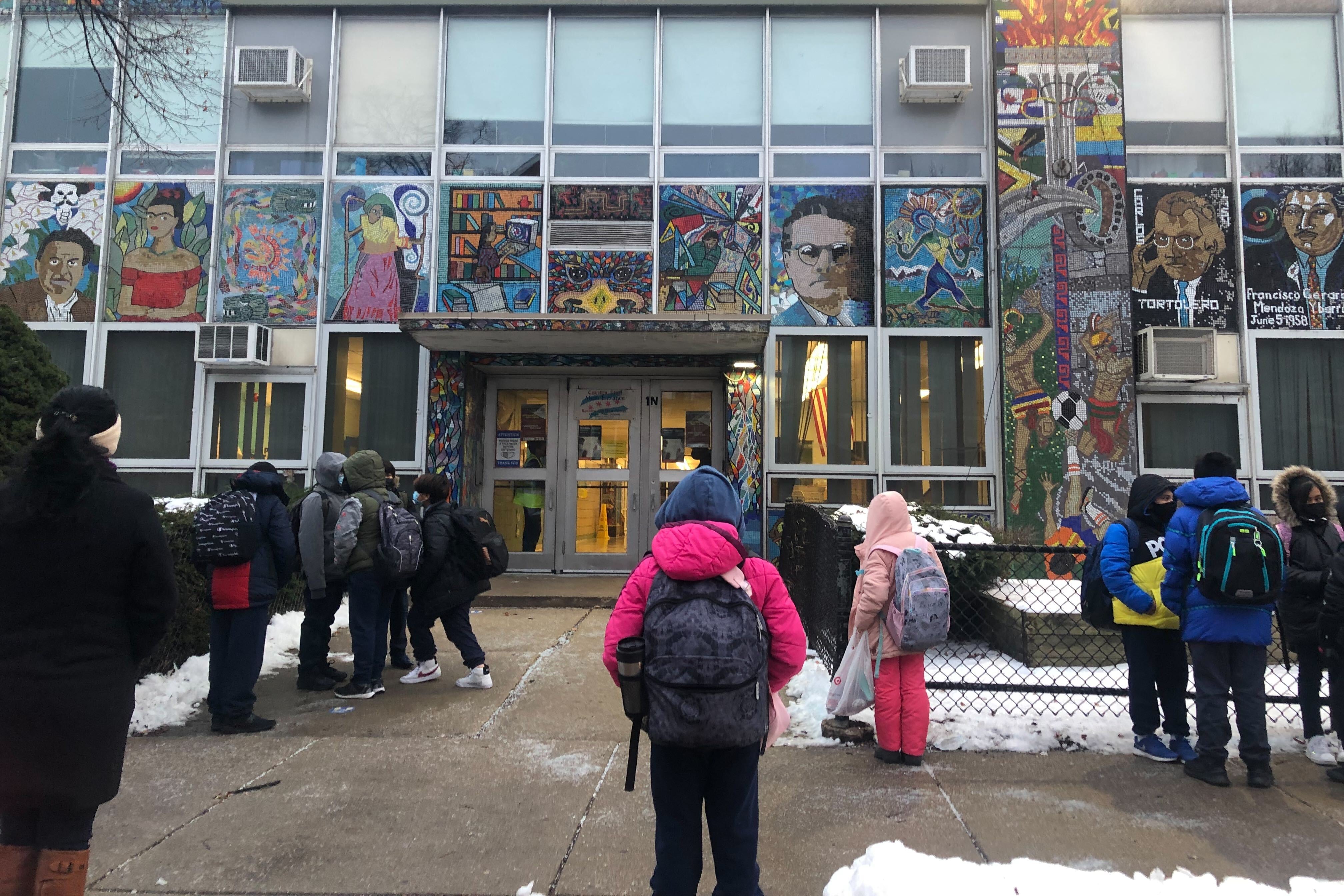It’s official.
Chicago Public Schools students will be returning to classes for the next school year on Aug. 22, marking the district’s earliest start in recent memory.
On Wednesday, the Chicago Board of Education approved the district’s proposed 2022-2023 academic calendar. The upcoming school year is now poised to start on Aug. 22 and end on June 7.
CEO Pedro Martinez said the decision was reached after engaging school leaders, teachers, parents, and students.
The newly adopted calendar is more aligned with suburban districts and will allow the district to wrap up the first semester before winter break, Martinez said. “It’s a much more balanced calendar.”
Chicago Public Schools has traditionally started after Labor Day weekend, but will now align its academic year with other suburban districts, local colleges, and universities.
This year, the school district also bucked tradition by opening ahead of Labor Day, marking a return to in-person learning after nearly two years of unpredictability amid the ongoing COVID-19 pandemic.
The approved 2022-23 calendar includes 176 student instructional days, four teacher institute days, four improvement days, two report card pickup days, four teacher professional development days, one parent-teacher conference day for high school and elementary students in the fall, and another in the spring.
Students will also have a full week off for Thanksgiving as opposed to three days.
In February, district leaders solicited feedback from students, parents, teachers, administrators, principals, and community members on an online survey that gave the option of an Aug. 22 or Aug. 29 start.
About 24,409 people voted for an Aug. 29 start, compared to 24,001 people who voted for an earlier start, district officials said.
During the Wednesday board meeting, Martinez said district officials were hoping to see a more decisive preference for one option over the other, but that wasn’t the case. Ultimately, the district opted for Aug. 22 because a majority of principals, teachers, and students preferred an earlier start, Martinez said.
Parents, guardians, local school council members, vendors, and community members supported the alternative option, which would have kept the start date as Aug. 29, officials said.
In responses to the online survey, some parents who supported the Aug. 29 start date said the early start was too drastic a change with little communication to families, while other parents thought an earlier start would allow more preparation for exams such as the SAT. During public comment at Wednesday’s board meeting, parent Celeste O’Connor said she was “shocked” about the district’s decision to move up the start date by two weeks.
Asked why individual schools could not pick their own academic calendar, Martinez noted that parents with students at multiple schools rely on consistent calendars for planning. He said having school-based calendars would pose operational challenges around transportation and capital investment improvements, which typically occur during the summer months when schools are empty.
Still, Martinez said the district would be building engagement efforts to gather more feedback.
“I think the district is becoming more and more open to different ideas around the calendar,” Martinez added.
Mauricio Peña is a reporter for Chalkbeat Chicago, covering K-12 schools. Contact Mauricio at mpena@chalkbeat.org.





